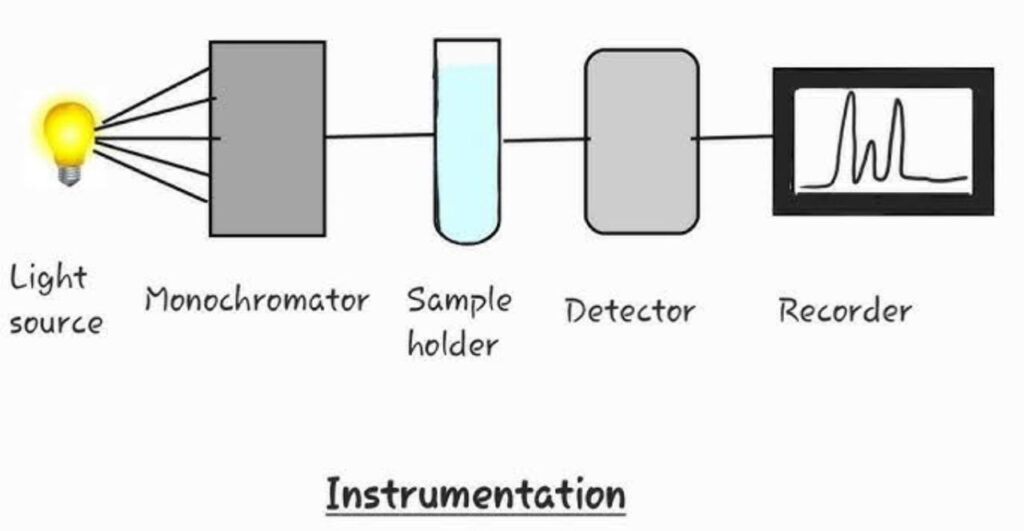Home » Books » 4th Year Books » Semester 7 Books » BP701T. INSTRUMENTAL METHODS OF ANALYSIS Books

BP701T. INSTRUMENTAL METHODS OF ANALYSIS Books
“Instrumental Analysis: Using instruments like spectrometers, chromatographs, and electrochemical analyzers to analyze pharmaceuticals and biological samples.”
Course Content
Unit Title
Content
UNIT-I
- UV Visible spectroscopy
Electronic transitions, chromophores, auxochromes, spectral shifts, solvent effect on absorption spectra, Beer and Lambert’s law, Derivation and deviations. - Instrumentation – Sources of radiation, wavelength selectors, sample cells, detectors- Photo tube, Photomultiplier tube, Photo voltaic cell, Silicon Photodiode.
- Applications – Spectrophotometric titrations, Single component and multi componentanalysis
- Fluorimetry
Theory, Concepts of singlet, doublet and triplet electronic states, internal and externalconversions, factors affecting fluorescence, quenching, instrumentation and applications
UNIT-II
- IR spectroscopy
Introduction, fundamental modes of vibrations in poly atomic molecules, sample handling, factors affecting vibrations - Instrumentation – Sources of radiation, wavelength selectors, detectors – Golay cell, Bolometer, Thermocouple, Thermister, Pyroelectric detector and applications
- Flame Photometry-Principle, interferences, instrumentation and applications
- Atomic absorption spectroscopy- Principle, interferences, instrumentation and applications
- Nepheloturbidometry- Principle, instrumentation and applications
UNIT-III
- Introduction to chromatography
- Adsorption and partition column chromatography-Methodology, advantages, disadvantages and applications.
- Thin layer chromatography- Introduction, Principle, Methodology, Rf values, advantages, disadvantages and applications.
- Paper chromatography-Introduction, methodology, development techniques, advantages, disadvantages and applications
- Electrophoresis– Introduction, factors affecting electrophoretic mobility, Techniques of paper, gel, capillary electrophoresis, applications
UNIT-IV
- Gas chromatography – Introduction, theory, instrumentation, derivatization, temperature programming, advantages, disadvantages and applications
- High performance liquid chromatography (HPLC)-Introduction, theory, instrumentation, advantages and applications.
UNIT-V
- Ion exchange chromatography- Introduction, classification, ion exchange resins, properties, mechanism of ion exchange process, factors affecting ion exchange, methodology and applications
- Gel chromatography- Introduction, theory, instrumentation and applications
- Affinity chromatography- Introduction, theory, instrumentation and applications
Learning Objectives
- Understand the interaction of matter with electromagnetic radiations and its applications in drug analysis
- Understand the chromatographic separation and analysis of drugs.
- Perform quantitative & qualitative analysis of drugs using various analytical instruments.
Share on WhatsApp
